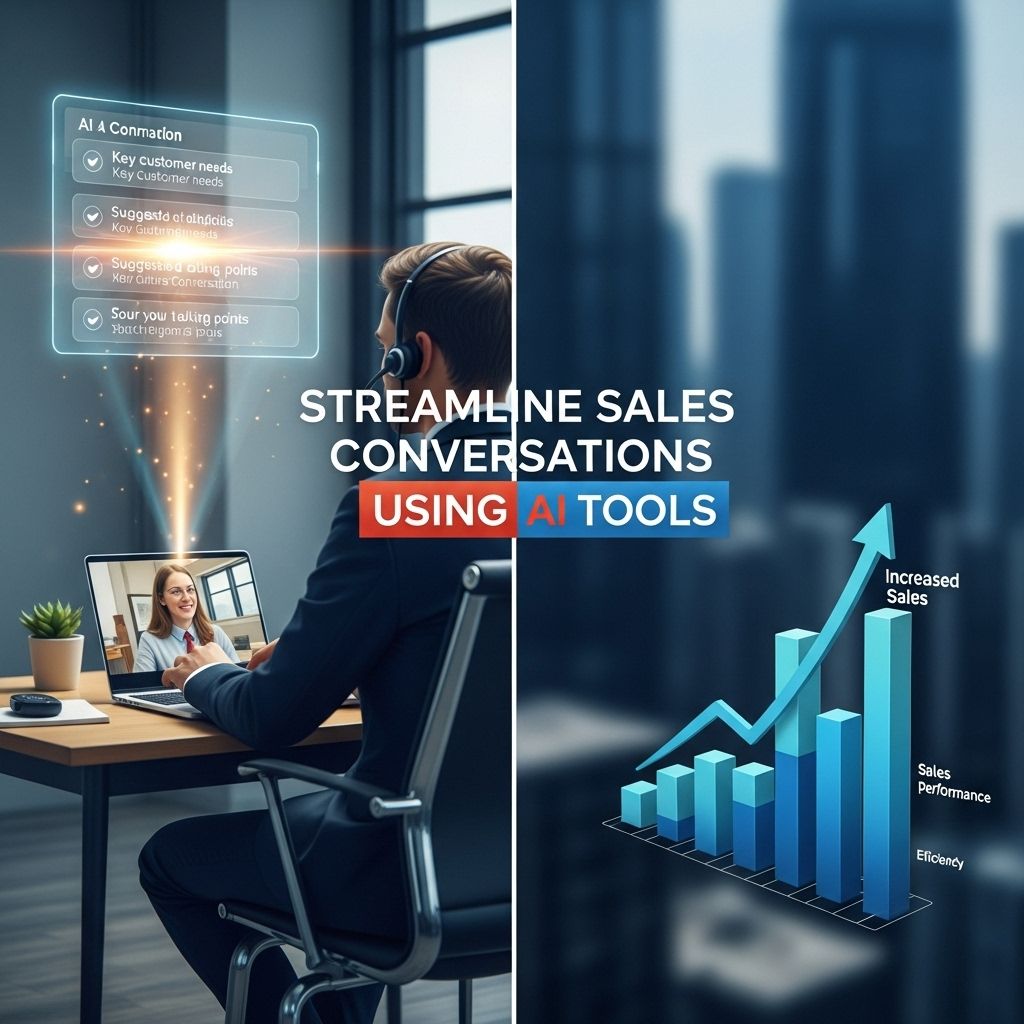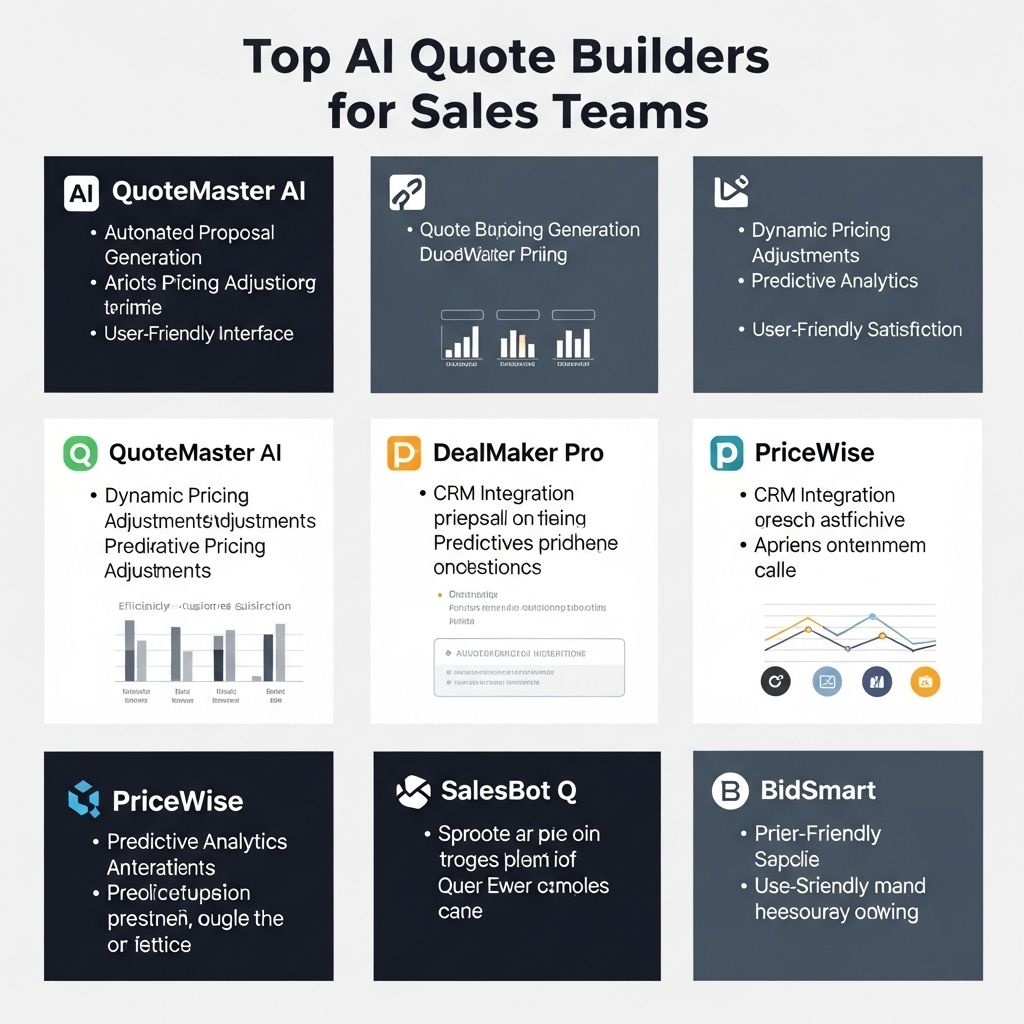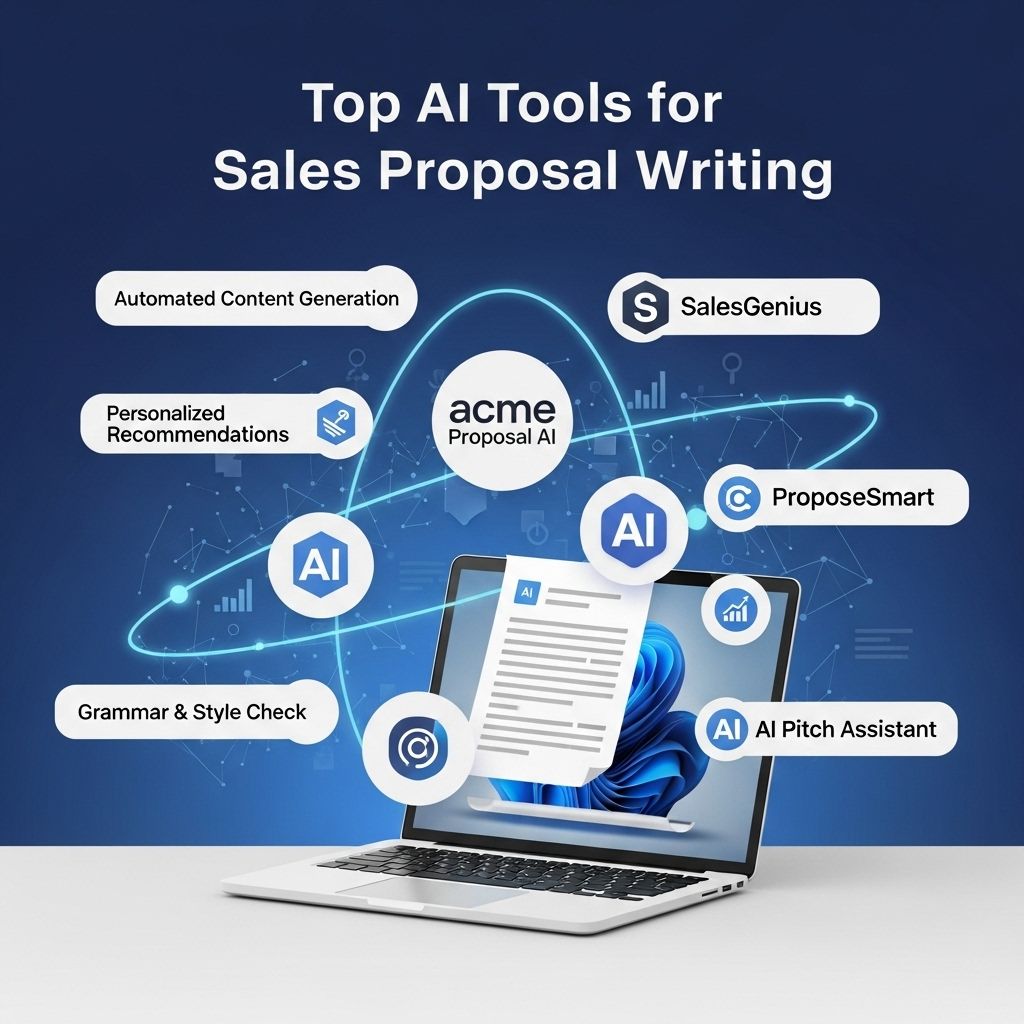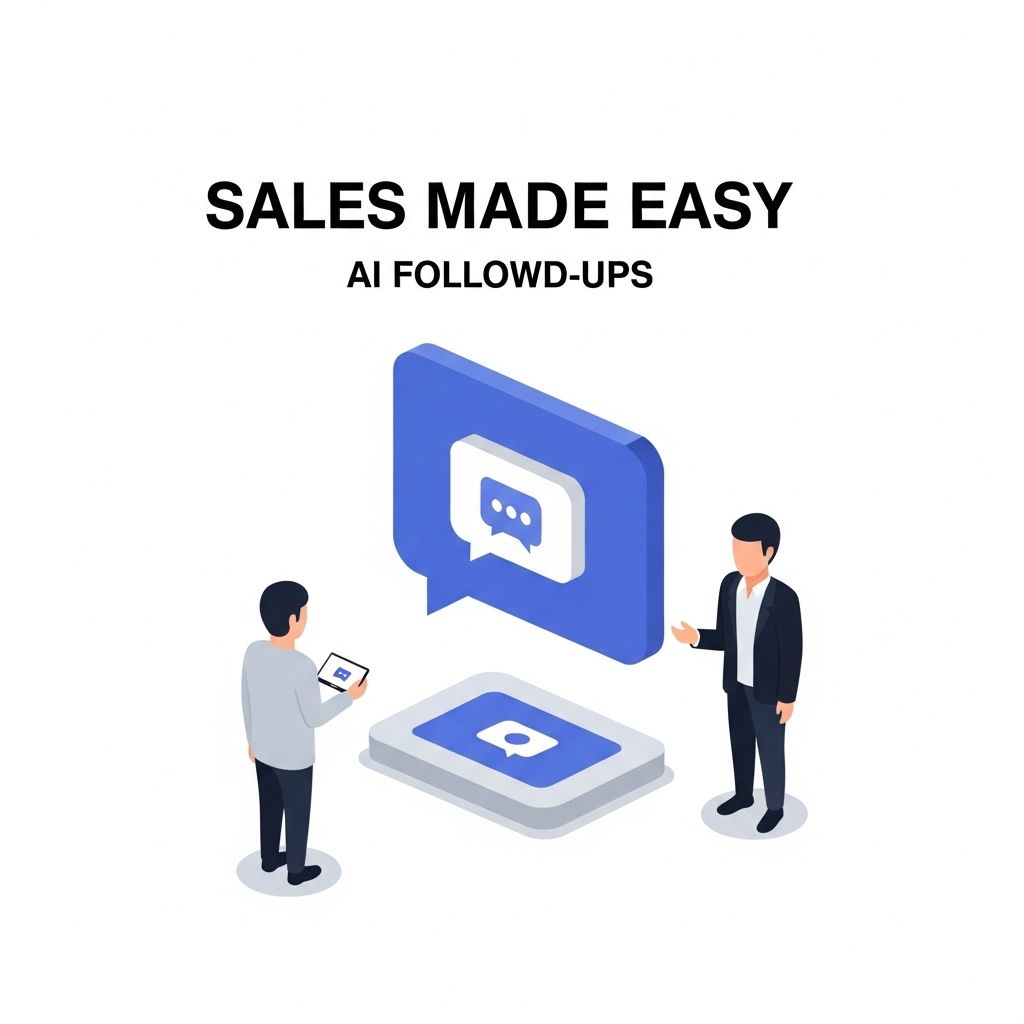How AI Chatbots Revolutionize Sales Follow-Ups
Discover how AI chatbots are transforming sales follow-ups, enhancing customer engagement, and driving conversions for businesses.

In a rapidly evolving digital landscape, businesses are constantly seeking innovative solutions to enhance customer engagement and streamline their sales processes. One of the most promising advancements in this domain is the emergence of AI chatbots. These intelligent virtual assistants are not just a novelty; they represent a substantial shift in how companies approach sales follow-ups, enabling more efficient communication, personalized interactions, and ultimately, improved conversion rates.
Table of Contents
The Role of AI Chatbots in Sales
AI chatbots serve as the frontline of customer interaction, capable of handling a myriad of tasks that traditionally required human intervention. By leveraging natural language processing (NLP) and machine learning algorithms, these bots can interpret customer inquiries, provide relevant information, and facilitate seamless follow-up processes. Here are some key roles that AI chatbots play in sales:
- 24/7 Availability: Unlike human sales representatives, AI chatbots can operate round the clock, ensuring that potential leads receive immediate responses regardless of the time of day.
- Personalization: By analyzing customer data and previous interactions, chatbots can tailor their responses to meet individual needs, enhancing the overall customer experience.
- Lead Qualification: Chatbots can efficiently qualify leads by asking a series of targeted questions, thereby identifying the most promising prospects for the sales team to pursue.
- Data Collection and Analysis: AI chatbots can gather valuable data during interactions, providing sales teams with insights into customer preferences and behaviors.
Enhancing Follow-Up Strategies
Follow-ups are crucial in the sales process, as they can significantly influence a potential customer’s decision-making journey. AI chatbots can enhance follow-up strategies in several ways:
1. Automated Follow-Up Messages
AI chatbots can be programmed to send automated follow-up messages based on user interactions. This ensures timely communication without overwhelming sales teams. For example:
- If a potential customer shows interest in a product but does not complete a purchase, a chatbot can follow up with a message like, “It seems you were interested in our premium package. Can I assist you with any questions?”
2. Scheduling Appointments
Chatbots can also facilitate the scheduling of appointments for sales calls or product demos. By integrating with calendar applications, they can suggest available times and send reminders, making it easier for customers to engage with sales representatives.
3. Seamless Re-engagement
AI chatbots can analyze patterns in customer behavior and initiate re-engagement strategies. For instance, if a customer hasn’t interacted with the brand in a while, the chatbot can reach out with tailored content, special offers, or invites to webinars.
Benefits of Implementing AI Chatbots
Integrating AI chatbots into the sales process yields numerous benefits for businesses:
| Benefit | Description |
|---|---|
| Increased Efficiency | AI chatbots can handle multiple inquiries simultaneously, reducing wait times and allowing sales teams to focus on higher-level tasks. |
| Cost Savings | By automating routine inquiries and tasks, companies can reduce operational costs associated with hiring and training additional staff. |
| Improved Customer Satisfaction | Quick response times and personalized interactions enhance the overall customer experience, leading to higher satisfaction ratings. |
| Higher Conversion Rates | Effective follow-ups facilitated by chatbots can lead to increased sales and improved conversion rates. |
Challenges to Consider
While the benefits are substantial, businesses must also navigate several challenges when implementing AI chatbots:
1. Technology Integration
Integrating chatbots with existing customer relationship management (CRM) systems and other tools can pose technical challenges that require careful planning and execution.
2. Personalization Limits
Although chatbots can provide personalized interactions, they may still struggle with complex inquiries that require human empathy and understanding.
3. Customer Acceptance
Some customers may be hesitant to interact with a bot rather than a human representative, which could impact user experience and engagement.
Future Trends in AI Chatbots
The future of AI chatbots in sales follow-ups is bright, with several emerging trends that promise to shape their development:
1. Enhanced Natural Language Understanding
As NLP technology continues to advance, chatbots will be better able to understand and respond to nuanced language, making conversations more human-like.
2. Integration with Voice Assistants
The growing popularity of voice-activated devices presents an opportunity for chatbots to provide follow-up support through these platforms, offering users a more convenient interaction method.
3. Proactive Engagement
Future chatbots may employ predictive analytics to anticipate customer needs and engage proactively, improving the likelihood of successful conversions.
Conclusion
AI chatbots are transforming the landscape of sales follow-ups, offering businesses an innovative way to engage with potential customers. Their ability to provide quick, personalized responses makes them invaluable assets in today’s fast-paced market. As technology continues to evolve, the role of chatbots in shaping sales strategies will likely expand, paving the way for new opportunities and challenges.
FAQ
What are AI chatbots and how do they work in sales follow-ups?
AI chatbots are automated software programs that use artificial intelligence to simulate human conversation. In sales follow-ups, they can engage with customers through messaging platforms, providing instant responses and tailored information based on user queries.
How can AI chatbots improve sales follow-up efficiency?
AI chatbots can handle multiple inquiries simultaneously, providing immediate responses to customers. This reduces the workload on sales teams, ensuring that no follow-up opportunities are missed and allowing for quicker engagement with leads.
What are the benefits of using AI chatbots for customer engagement?
The benefits include 24/7 availability, personalized interactions, faster response times, and the ability to analyze customer data for improved targeting and messaging strategies.
Can AI chatbots integrate with existing CRM systems?
Yes, many AI chatbots are designed to integrate seamlessly with popular CRM systems, allowing for streamlined data sharing and enhancing the efficiency of sales follow-ups.
What role does AI play in personalizing follow-up messages?
AI technology enables chatbots to analyze customer behavior and preferences, allowing them to craft personalized follow-up messages that resonate more effectively with individual customers.
Are AI chatbots cost-effective for small businesses?
Yes, AI chatbots can be a cost-effective solution for small businesses by automating routine follow-up tasks, reducing the need for extensive sales staff, and ultimately increasing conversion rates.








